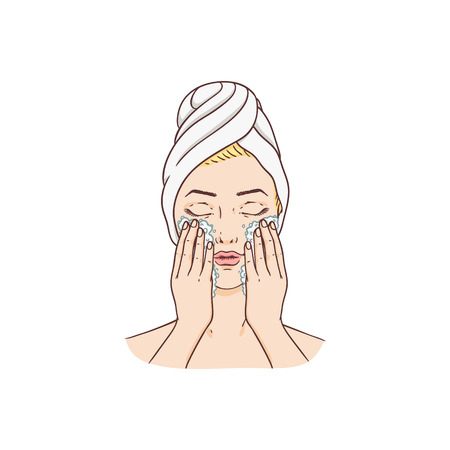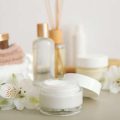Understanding the UK Climate and Your Skin
When building a skincare routine tailored for life in the UK, it’s essential to first understand how Britain’s unique weather patterns affect your skin. The British climate is famously unpredictable—one moment you’re facing a damp, chilly drizzle, and the next you’re surprised by a fleeting burst of sunshine. These constant shifts can leave your skin feeling confused, leading to everything from dryness and sensitivity in winter to oiliness or congestion during humid summer spells.
The Impact of British Weather on Skin Health
Unlike the consistently sunny climates found elsewhere, the UK’s mix of moisture, wind, and temperature changes means your skin’s needs can vary dramatically throughout the year. Here’s how each season typically impacts your complexion:
| Season | Weather Traits | Common Skin Issues |
|---|---|---|
| Winter | Damp, cold, windy | Dryness, flakiness, redness |
| Spring | Mild, rainy spells | Sensitivity, uneven texture |
| Summer | Warm with humidity or sudden heatwaves | Oiliness, clogged pores, breakouts |
| Autumn | Cooler temperatures, increased wind | Dullness, dehydration |
Why a Tailored Skincare Routine Matters in the UK
Because of these constant shifts, adopting a one-size-fits-all approach simply won’t do. Face masks and exfoliators become essential tools for adapting to the ever-changing demands of your skin. By selecting products that target seasonal concerns—such as hydrating masks for winter or gentle exfoliators for summer—you can maintain a healthy glow no matter what the British weather throws at you.
Choosing the Right Face Masks for British Skin Types
The UK’s ever-changing weather, coupled with environmental factors such as pollution and hard water, can create unique skincare challenges for British residents. To create a truly effective skincare routine, it’s crucial to identify your skin’s most common concerns—whether that’s dryness from central heating, dullness caused by overcast skies, or sensitivity from frequent rain and wind. Once you’ve pinpointed your main issues, selecting the right type of face mask becomes much simpler and more effective.
Common UK Skin Concerns & Their Ideal Face Masks
| Skin Concern | Typical Triggers in the UK | Recommended Mask Type | Key Ingredients |
|---|---|---|---|
| Dryness & Dehydration | Central heating, cold winds | Hydrating Mask | Hyaluronic acid, glycerin, aloe vera |
| Dullness & Tired Complexion | Lack of sunlight, urban pollution | Brightening/Detoxifying Mask | Vitamin C, clay, charcoal |
| Sensitivity & Redness | Frequent weather changes, hard water | Soothing/Calming Mask | Chamomile, calendula, oat extract |
| Blemishes & Congestion | Pollution, stress, humidity spikes | Purifying Mask | Tea tree oil, kaolin clay, salicylic acid |
How to Match Your Mask to Your Skin’s Needs
If your skin feels tight and flaky after a day out in brisk winds or exposure to indoor heating, opt for a hydrating mask once or twice a week. Those living in cities like London or Manchester may benefit from weekly detoxifying masks to combat the effects of air pollution. Meanwhile, if you’re prone to redness or irritation—common in areas with hard water—soothing masks can help restore balance and comfort.
Pro Tip: Multi-Masking for Complex Skin Concerns
Many British residents experience combination skin due to shifting climates. Multi-masking—using different masks on different areas of your face at the same time—can be particularly effective. For example, apply a clay mask on oily zones (like the T-zone) and a hydrating mask on drier cheeks for targeted results.

3. Exfoliators: Frequency and Best Local Ingredients
Exfoliation is a vital step in any UK-friendly skincare routine, but it’s especially important to approach this process gently if you have sensitive British skin. The UKs ever-changing weather, from brisk winds to central heating, can leave skin feeling delicate and prone to irritation. Here’s how to exfoliate smartly, using ingredients that are both effective and gentle enough for local needs.
How Often Should You Exfoliate?
For most people in the UK, exfoliating 1–2 times a week is ideal, particularly if your skin tends towards sensitivity or dryness. Over-exfoliation can strip away essential moisture, leaving your complexion red or flaky. If you’re using chemical exfoliants (like AHAs or BHAs), stick to once weekly until your skin builds tolerance.
Recommended Exfoliation Frequency
| Skin Type | Frequency |
|---|---|
| Sensitive/Dry | Once per week |
| Normal/Combination | 1–2 times per week |
| Oily/Resilient | Up to 3 times per week* |
*Always monitor your skin for signs of irritation and scale back if needed.
Best Local Ingredients for British Skin
The UK is home to some wonderfully soothing natural ingredients perfect for gentle exfoliation. Two standouts are oat and chamomile:
- Oat: Finely ground oats act as a mild physical exfoliant while also calming redness and supporting the skin barrier. Oats are rich in beta-glucan, which helps lock in moisture—ideal for the British climate.
- Chamomile: Chamomile extract offers anti-inflammatory benefits, reducing irritation often triggered by environmental stressors. Incorporating chamomile into your exfoliator can help soothe even the most sensitive complexions.
Benefits of Key Ingredients
| Ingredient | Main Benefit for Skin | Why It Suits UK Conditions |
|---|---|---|
| Oat | Mild exfoliation & hydration boost | Counters dryness from cold, damp weather; soothes wind-chapped skin |
| Chamomile | Reduces redness & calms irritation | Eases inflammation from sudden weather shifts; supports sensitive skin types common in Britain |
For best results, look for locally made exfoliators that feature these hero ingredients on their INCI list. Always patch test first and follow up with a nourishing moisturiser—your skin will thank you!
4. Simple Steps to Layer Masks and Exfoliators for Maximum Results
Getting the most out of your face masks and exfoliators is all about the right order and technique—especially when navigating the often unpredictable British climate. The following steps break down how to layer these products in a UK-friendly skincare routine, ensuring your skin reaps every benefit, from enhanced absorption to optimal comfort.
Exfoliation First: Prepping Your Canvas
Exfoliating before masking is key. In the UK, where pollution, humidity, and central heating can lead to dullness or congestion, gentle exfoliation removes dead skin cells, allowing your mask’s active ingredients to penetrate more deeply. Opt for a chemical exfoliant (like an AHA or BHA) if you have sensitive skin, or a mild physical scrub if you prefer something tactile.
The Ideal Order for Exfoliating and Masking
| Step | Product Type | Purpose | UK-Friendly Tip |
|---|---|---|---|
| 1 | Cleanser | Removes makeup & impurities | Use lukewarm water to avoid irritation in colder months |
| 2 | Exfoliator | Sheds dead skin for smoother texture | Limit to 1–2 times weekly if your skin is sensitive to weather changes |
| 3 | Face Mask | Treats specific concerns (hydration, brightening) | Choose hydrating masks during winter; clay masks in humid summer spells |
| 4 | Toner/Essence | Balances pH & preps for next steps | A calming toner with rosewater suits British skin types year-round |
| 5 | Moisturiser/SPF (AM) or Night Cream (PM) | Locks in benefits & protects barrier | Never skip SPF—even on cloudy UK days! |
The British Comfort Factor: Timing Matters
Avoid over-exfoliating—twice a week works well for most UK skin types. Always follow with a soothing mask (think oat or honey-based) if you’ve used an active exfoliant. Pay attention to how your skin feels after each step; if you notice redness or tightness, scale back frequency or switch to gentler formulas.
Pro Tip: Mind Your Mask Types and Skin Needs All Year Round
In the UK’s ever-changing climate, alternate between hydrating sheet masks and detoxifying clay masks depending on your skin’s needs and the weather. Hydration is key during colder months, while oil control may be necessary in summer. Remember: always patch test new products first and listen to your skin’s unique signals for best results.
5. Must-Know Dos and Donts for UK Skincare Success
The British climate—with its signature drizzle, fluctuating temperatures, and long spells of dampness—demands a tailored approach to face masks and exfoliators. To help you achieve glowing skin all year round, here are the essential dos and don’ts every UK skincare enthusiast should know.
Common Pitfalls to Avoid
| Pitfall | Why It Matters in the UK | What to Do Instead |
|---|---|---|
| Over-Exfoliating during Damp Months | Excess humidity can make skin more sensitive; over-exfoliating strips natural oils, increasing irritation. | Limit exfoliation to once or twice weekly with gentle products. |
| Using Heavy Masks in Humid Weather | Thick, occlusive masks can clog pores when its muggy outside. | Opt for lightweight gel or clay-based masks in spring and summer. |
| Ignoring Your Skin’s Changing Needs | UK weather is unpredictable; your skin might need different care from week to week. | Adjust product choices seasonally—hydrating in winter, balancing in summer. |
| Skipping Patch Tests with New Products | Sensitivity is common due to environmental stressors; reactions are more likely in changing climates. | Always patch test on your inner arm before applying new masks or exfoliators to your face. |
Top High Street Picks for Every Step
You don’t need to splurge on international shipping—some of the best products are available right on your local high street. Here are tried-and-tested favourites that cater to British skin concerns:
| Step | Product Recommendation (UK High Street) | Why It Works Locally |
|---|---|---|
| Cleansing Exfoliator | No7 Radiant Results Revitalising Daily Face Polish (Boots) | Mild enough for frequent use, effective against urban pollution build-up. |
| Gentle Face Mask | L’Oréal Paris Pure Clay Detox Mask (Superdrug/Boots) | Purifies without stripping moisture—ideal for city dwellers facing congestion and humidity. |
| Hydrating Mask (for colder months) | NIVEA Urban Skin Good Night Detox Mask (Tesco/Boots) | Replenishes hydration lost from central heating and brisk winds. |
| Soothing Exfoliator (for sensitive skin) | Sukin Super Greens Facial Scrub (Holland & Barrett) | Naturally derived; gentle enough for those prone to redness from sudden weather shifts. |
Your UK Skincare Routine Cheat Sheet
- Do: Adjust frequency and type of exfoliation based on the weather—less is more during rainy, damp periods.
- Don’t: Use overly harsh scrubs; opt for chemical exfoliants like lactic acid if you have sensitive skin or rosacea.
- Do: Choose masks that address current climate challenges (hydration in winter, oil control in summer).
- Don’t: Forget SPF—cloudy skies don’t block UV rays!
The Bottom Line: Listen to Your Skin—and the Weather Report!
A successful UK-friendly skincare routine hinges on flexibility and local know-how. By sidestepping common pitfalls and embracing accessible high street heroes, you’ll keep your complexion radiant whatever the British forecast brings.
6. Adding a British Touch: Eco-Conscious and Cruelty-Free Choices
As the UK’s beauty scene continues to champion sustainability, integrating eco-conscious and cruelty-free products into your skincare routine is not just a trend—it’s a movement. British consumers are increasingly mindful of their environmental impact, making it the perfect time to support home-grown brands that prioritise both ethical practices and effective formulations. When selecting face masks and exfoliators, look for those made in the UK with responsibly sourced ingredients and minimal packaging.
Why Go Eco-Friendly?
Choosing sustainable skincare ensures that your self-care routine aligns with a greener future. Many British brands are leading the charge by offering vegan-friendly, cruelty-free, and recyclable options—meaning you don’t have to compromise on performance or values.
Spotlight: Home-Grown Sustainable Brands
| Brand | Eco Credentials | Signature Face Mask/Exfoliator |
|---|---|---|
| Lush | Fresh, handmade, cruelty-free, zero-waste packaging | Mask of Magnaminty (face & body mask) |
| Pai Skincare | Certified organic, vegan, locally produced | Copaiba Deep Cleanse AHA Mask |
| The Body Shop | B Corp certified, community trade ingredients, recyclable packaging | Himalayan Charcoal Purifying Glow Mask |
Simple Steps for an Eco-Conscious Routine:
- Opt for refillable or recyclable containers where possible
- Check for cruelty-free certifications such as Leaping Bunny or Vegan Society logos
- Support brands that source ingredients ethically and locally
By embracing these eco-friendly choices, you celebrate both your skin and the UK’s commitment to sustainability—making your skincare ritual a reflection of modern British values.


